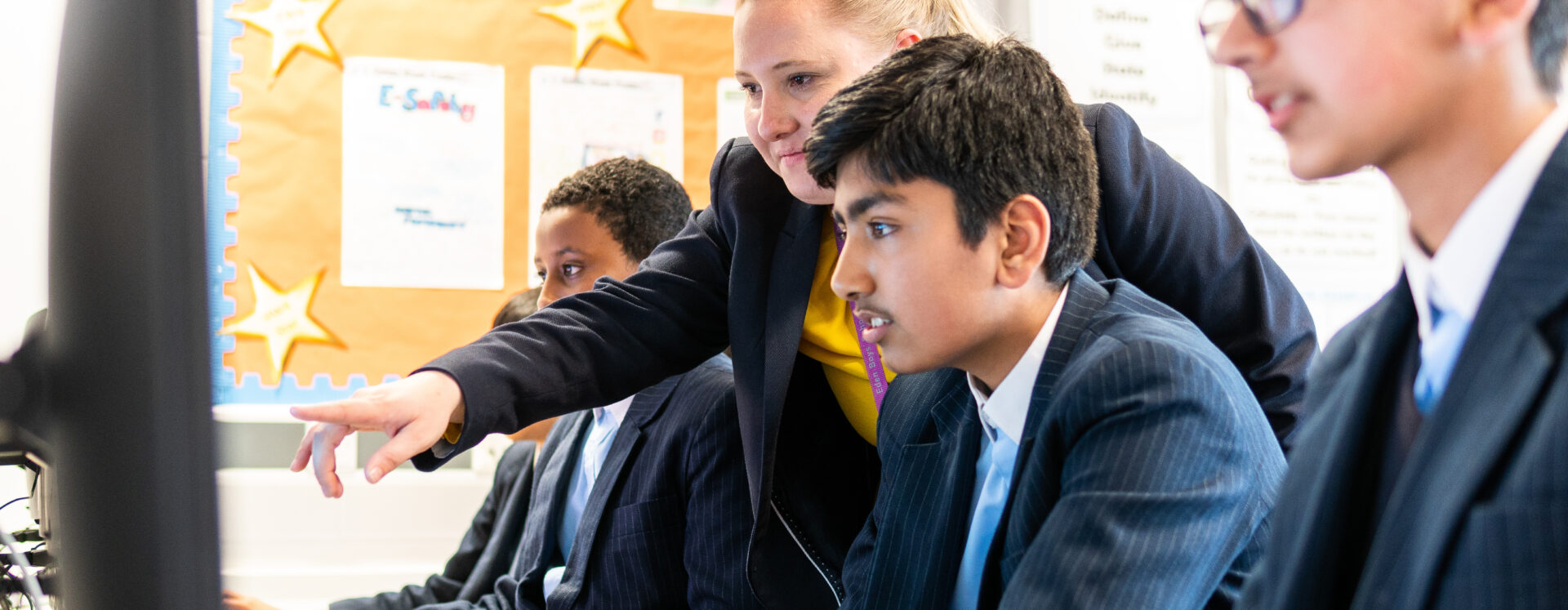History
Why study History?
Understanding past events and people and their significance gives students a better insight into the world around them. We believe in the importance of not just learning history but learning from history. The study of History equips pupils with the ability to critically analyse source material, assess the merits of different arguments, hone their debating skills, and recognise bias and propaganda.
How will I study History?
Pupils study History through big enquiry questions. Each enquiry covers a sequence of lessons. At the end of that sequence of lessons pupils are equipped to formulate their own answer to the enquiry. These are genuine historical debates amongst academic historians. Pupils learn historical concepts that are revisited regularly in different periods of time, locations and people allowing pupils to gain a deeper understanding. Alongside this, pupils learn to be historians developing their disciplinary knowledge understanding methods of historical enquiry, how evidence is used to make historical claims and understand why there are different interpretations of the past.
What will I study at Key Stage 3?
In Year 7, pupils explore historical enquiries that span the Roman to Tudor period. This includes:
- Historical enquiries that explore how the Roman Empire expanded and left its legacy on Europe and the Middle East.
- How the Normans invaded England and changed its social, political, and economic landscape.
- The significance of the Silk Road in exchanging cultural knowledge between East and West.
- How the Islamic world affected the Medieval period?
- What was the Reformation and how did it impact Britain.
In Year 8, pupils move through the study of Mughal India and end with the fight for the vote with the Suffragettes in Britain.
Pupils explore enquiries that cover:
- Who was the greatest Mughal of them all?
- How did India achieve independence?
- How did the British lead the French into revolution?
- Did the abolition of slavery end slavery?
- Why is the British Empire on trial?
- Was the Industrial period beneficial or negative for Britain.?
In Year 9, pupils move into the twentieth century to present day. Historical enquiries explore:
- Was the First World War worth winning?
- Why did the Great Depression lead to rise of dictators?
- How far did new ideas cause conflict?
- Why were the Nazis able to implement the Final Solution?
What will I study at Key Stage 4?
At Key Stage 4, pupils take a Modern depth study on Germany 1890-1945. Pupils study Weimar and Nazi Germany. This covers the Weimar Republic, Hitler’s rise to power, Nazi control and dictatorship, life in Nazi Germany.
As a thematic study, pupils study Health and the British People c1000 to the present day. This explores ideas about:
- The improvement in Surgery, medicine and public health through the Middle Ages, Renaissance and post-industrial world.
As a British depth study, pupils explore early Norman England. They focus on the William’s conquest, government and religion, challenges to King William at home and abroad, and Norman society and the impact on law, order and the Church. They will also explore a specific Norman site in depth focusing on its historical context and examining the relationship between a specific place and associated historical events and developments.
In addition, pupils undertake a period study focusing on the inter war years. This covers the origins of the of WW2, attempts to reduce tension post WW1 and the collapse of the League of Nations.
Assessment at Key Stage 4
History AQA 8145
| Overview | Focus |
|---|---|
| Written exam (2 hours) 84 marks 50% of GCSE |
Section A: Germany, 1890–1945: Democracy and dictatorship Section B: Conflict and tension 1918–1939 |
| Overview | Focus |
|---|---|
| Written exam (2 hours) 84 marks 50% of GCSE |
Section A: Norman England c1000-1080 Section B: Britain Health and the people c1000 to the present day |
KS4 Exam Board Specification: AQA GCSE History (8145)
Enrichment
The department offers a range of educational visits throughout the year. In lessons, History is brought to life through re-enactments, the exploration of artefacts, original film footage and model making. Pupils can take part in school-wide competitions to increase their engagement and enhance their subject knowledge. The department also puts on live History exhibitions bringing to life stories of the past through the display of food, culture, architectures, clothing, and art. Intervention sessions to consolidate prior learning and ensure maximum progress are at the heart of our delivery model.
Careers
The study of History can lead to future careers ranging from Politics, Law, Researcher, Museum Archivist and Journalist to Librarian, Business Consultant and Editor. Famous History graduates include Louis Theroux (documentary filmmaker, author), Jonathan Ross (TV presenter), Joe Biden (US President) and Gordon Brown (ex-British Prime Minister).

